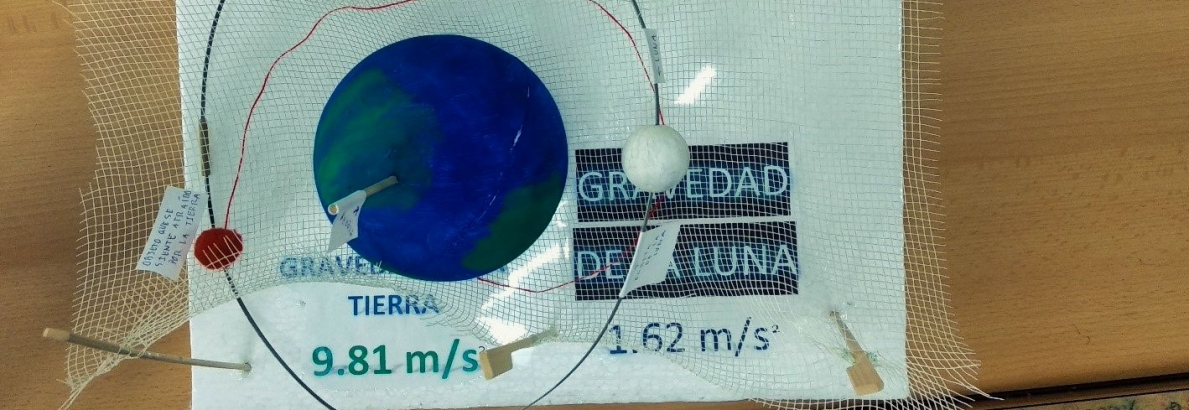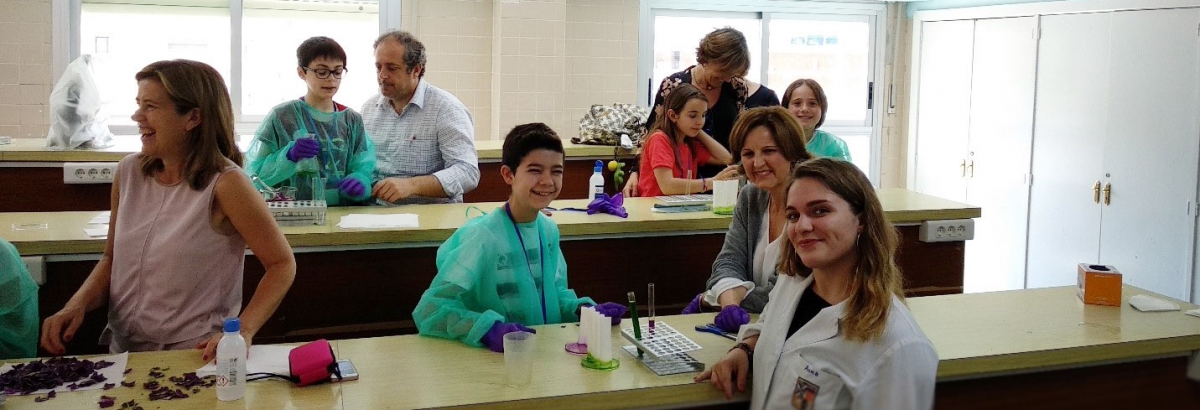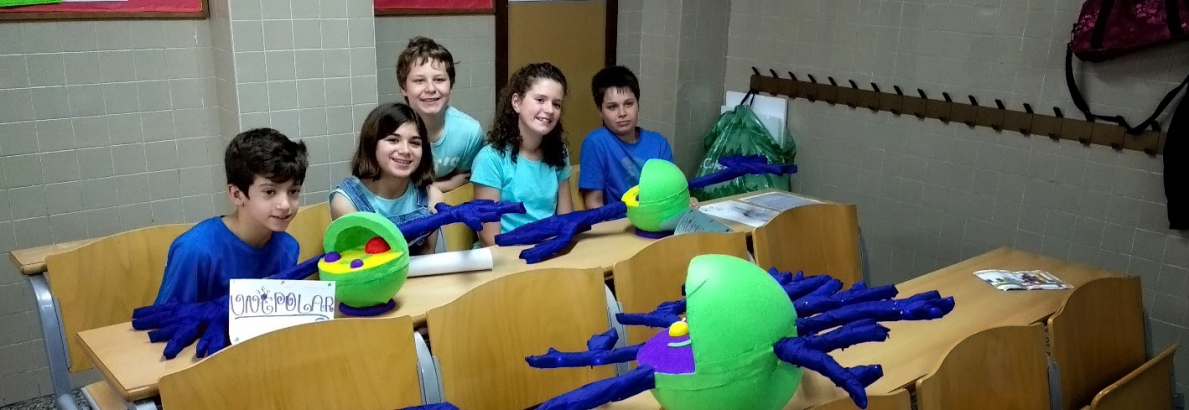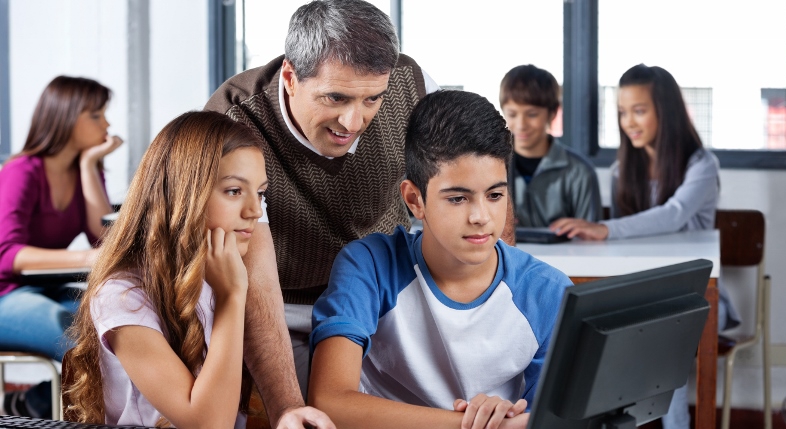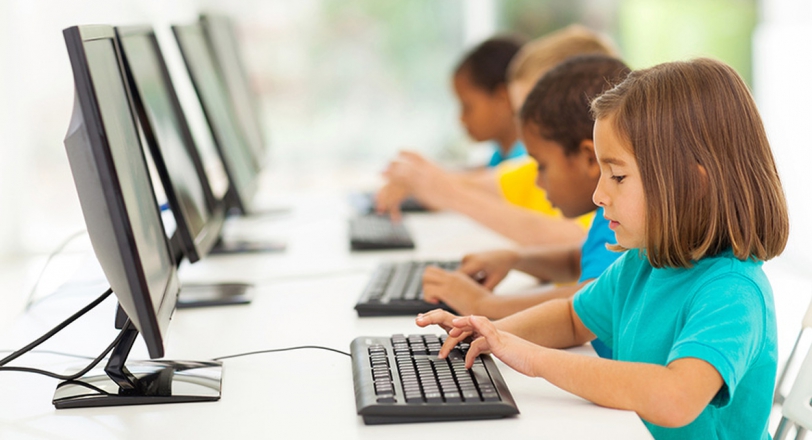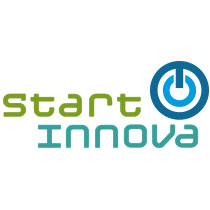
START INNOVA
Since 2018 our school has been participating in the Start Innova competition. It is a competition aimed at students from 4th of Secondary to Bachillerato Level 2 that seeks to develop the entrepreneurial spirit amongst young people allowing them to launch businesses or social initiatives that improve overall quality of life. In this way, they become generators of employment, thus benefiting society. The winner receives an investment with which to launch their business idea. The judges’ panel is comprised of entrepreneurs and heads of national and regional media.
This activity allows them to develop teamwork, critical thinking, personal effort and creativity giving them the confidence and the understanding that their ideas can change society.
It also gives them an insight into the reality of the media and the companies collaborating on these types of events.
The students have always shown truly remarkable involvement and effort, highly valuing this activity that enriches them personally and academically.
FLIPPED CLASSROOM "TURNING THE CLASSROOM UPSIDE DOWN"
School in the 20th century was characterized by teachers with few resources: blackboard, coloured chalk and at best a projector for films or transparencies. Currently, many powerful technological tools have emerged to further develop the educational process. Our students are "digital natives", which means that they have acquired the ability to use these new tools from a very early age. Schools must take advantage of this potential.
The “Flipped Classroom” methodology takes advantage of these new tools (smartphones, tablets, and computers, each more powerful than the next) to invert the educational method. The teacher prepares the content that students must acquire through audiovisual and interactive materials. Students can integrate these concepts in a more meaningful way and at their own pace. With e-learning platforms such as Google Classroom, Schoology, Moodle, etc. the teacher can personalise these materials for their students. Therefore, the student becomes the main character of his or her own learning and does not limit knowledge to a textbook. With powerful tools such as Google Forms, Kahoot, and Edpuzzle, the teacher receives immediate feedback and valuable information about the prior knowledge of their students. In this way, they can develop more personalised and meaningful lessons, attending to the diversity of the learning styles that are present in today's classroom. The “Flipped Classroom” methodology focuses classroom activity on tasks to develop these contents and so, most of the school time is used for student activity, hence the term "flipping the classroom". The focus of teaching activity then shifts from the teacher to the student. Activity at school should be developed through cooperative learning which fosters and develops skills and values such as responsibility, autonomy, motivation, respect for others, etc.
In our school, this technology is used by many teachers, both in Primary and Secondary.
SCIENCE FAIR
The San Alberto Magno Science Fair is an academic experience that can be realized in many different ways. The Scientific Method is applied to learn about reality at different levels and in different scientific disciplines. Dominicos school Science Fair runs from January to May, thanks to the development of research projects carried out by students from 5th of Primary to Bachillerato Level 2 under the guidance of teachers from different subjects.
The main objective is to develop scientific interest within the school, as well as to develop specific research skills, improve problem-solving skills and, without a doubt, encourage interest in science and academic excellence in the school. The objectives for the school are varied and, among them, we can highlight:
- To develop cooperative learning between the different levels and disciplines, verticality and transversally.
- To showcase the school outside of the school environment.
- Improving interdepartmental coordination.
- Fulfilling the BEDA objectives.
- To promote cooperative work.
The science fair is held at the end of the year festival and it is when the projects will be presented and planned science activities will be carried out by the school. The science fair has several levels of academic aims:
- Exhibition of projects: Each project must be accompanied by an explanatory poster showing the whole process of the students' research. In many cases, models and experiments will also be presented, or activities related to the project will be carried out to show it to the whole community.
- Scientific practices: As a parallel activity and at the same time as the exhibition of projects, laboratory experiments will be carried out for all students and parents who want to enjoy a festive yet academic day at school.
- Presentation of the projects: Each project must be presented to the judges using any audiovisual presentation system: PowerPoint, Prezi, videos, etc. The duration will be 5 minutes and students must conform to the format. All projects must include an abstract in English.
This year's San Alberto Magno Science Fair will have a central theme for all the programmed activities: female scientists. We would like to encourage all those interested to think about a research project and contact their teachers to develop it. Good luck!
2021 - GALLERY
ESCAPE ROOM
At the San Alberto Magno Science Fair there will be an activity for parents and children to do together. It is a mathematical Escape Room where, through a story, the participants have to solve puzzles to get out of the room. However, there’s always a twist of ingenuity and skill to this challenge.
The previous edition was held in the center's computer room. After telling the story of a deranged math teacher, the students solved puzzles and logic problems, deciphered maps to find objects, obtained codes to access a computer with clues and looked for a person who would give them valuable information.
The experience of facing this challenge together as a family was really exciting. In fact, in truly funny moments, the excitement of some parents contrasted with the calmness of their children.
We believe that this activity contributes to learning through immersion. This gaming adventure teaches problem solving skills that can be applied to everyday life.
We understand that if we balance the use of knowledge and skills within a fun activity we learn to face challenges without fear. Any challenge can be overcome. We hope that engagement in these activities will contribute to further interest in mathematics inspiring the desire to continue learning.
Given their enthusiasm for this activity, we would also like to involve students in the preparation of new escape rooms which are prepared specifically for parents.
VEGETABLE GARDEN
This Educational Project promotes multidisciplinary activities for the entire school. It is specifically designed for Kindergarten students.
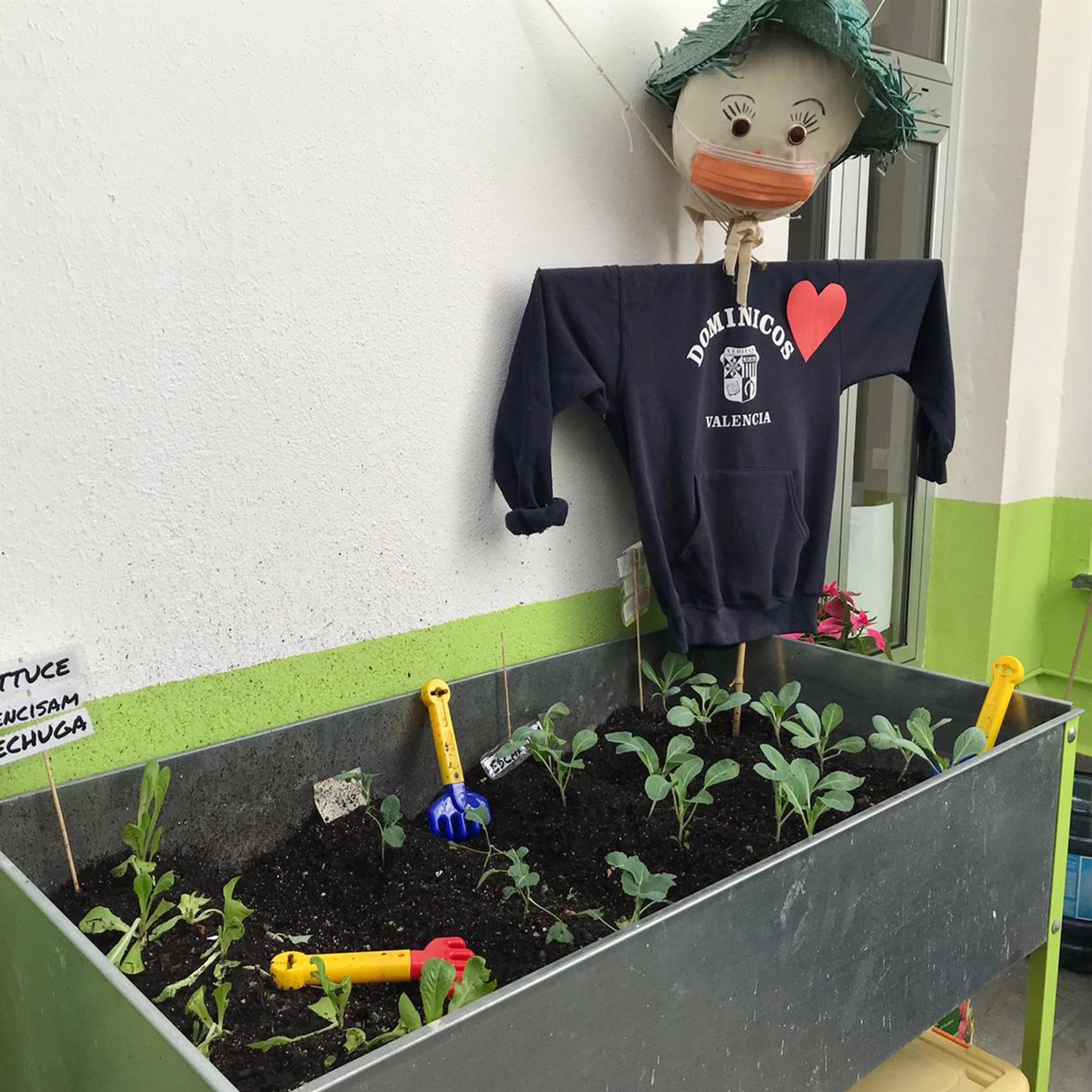
We dive into the world of horticulture as a project so that the educational community, not only our students, become aware of the importance of integrating the school garden into the teaching-learning process.
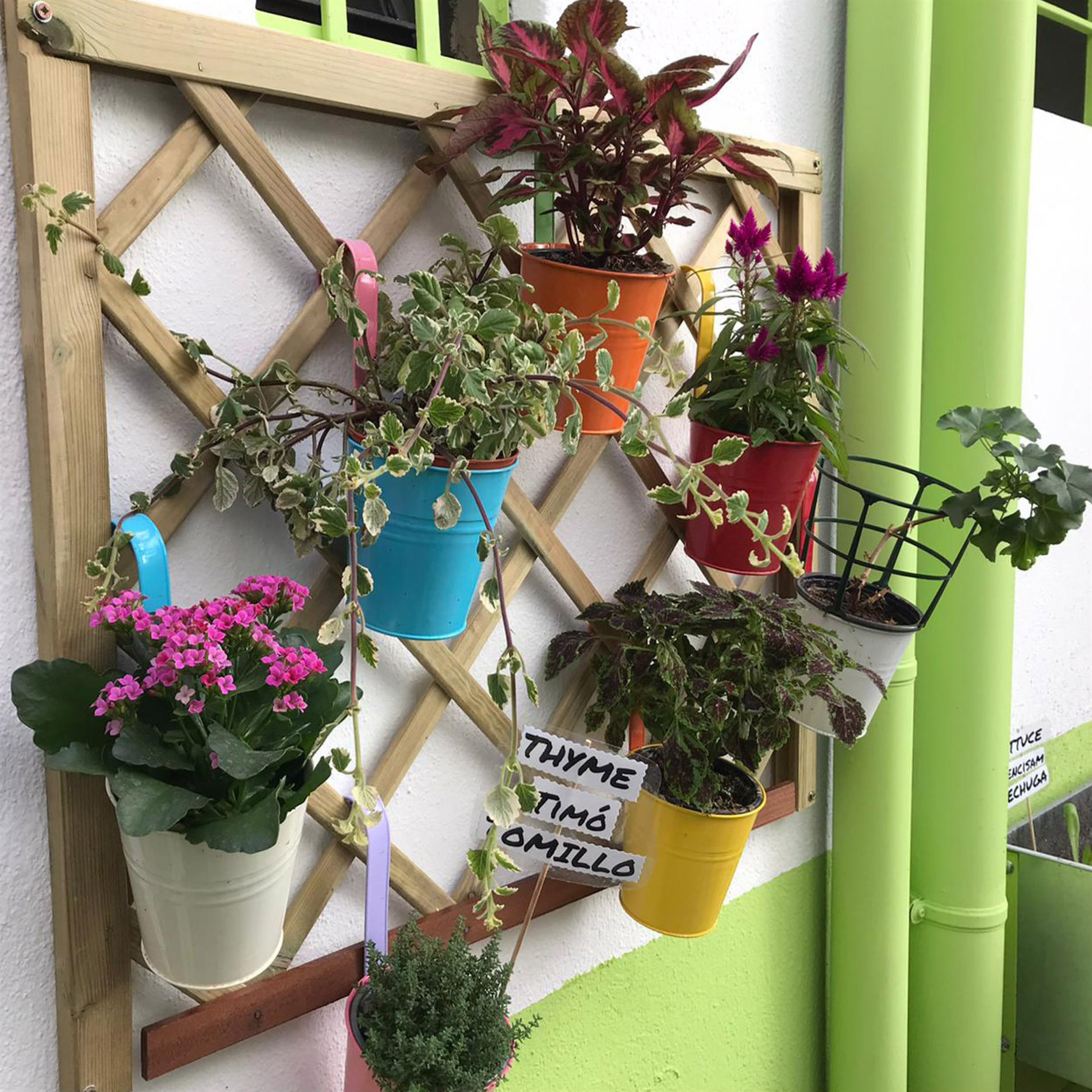
We work with a project-based methodology that offers us globalising and motivating experiences in the acquisition of knowledge. The activities that we carry out contribute to making students more autonomous and capable of reflecting on their own, always with the teacher as a guide throughout this process.
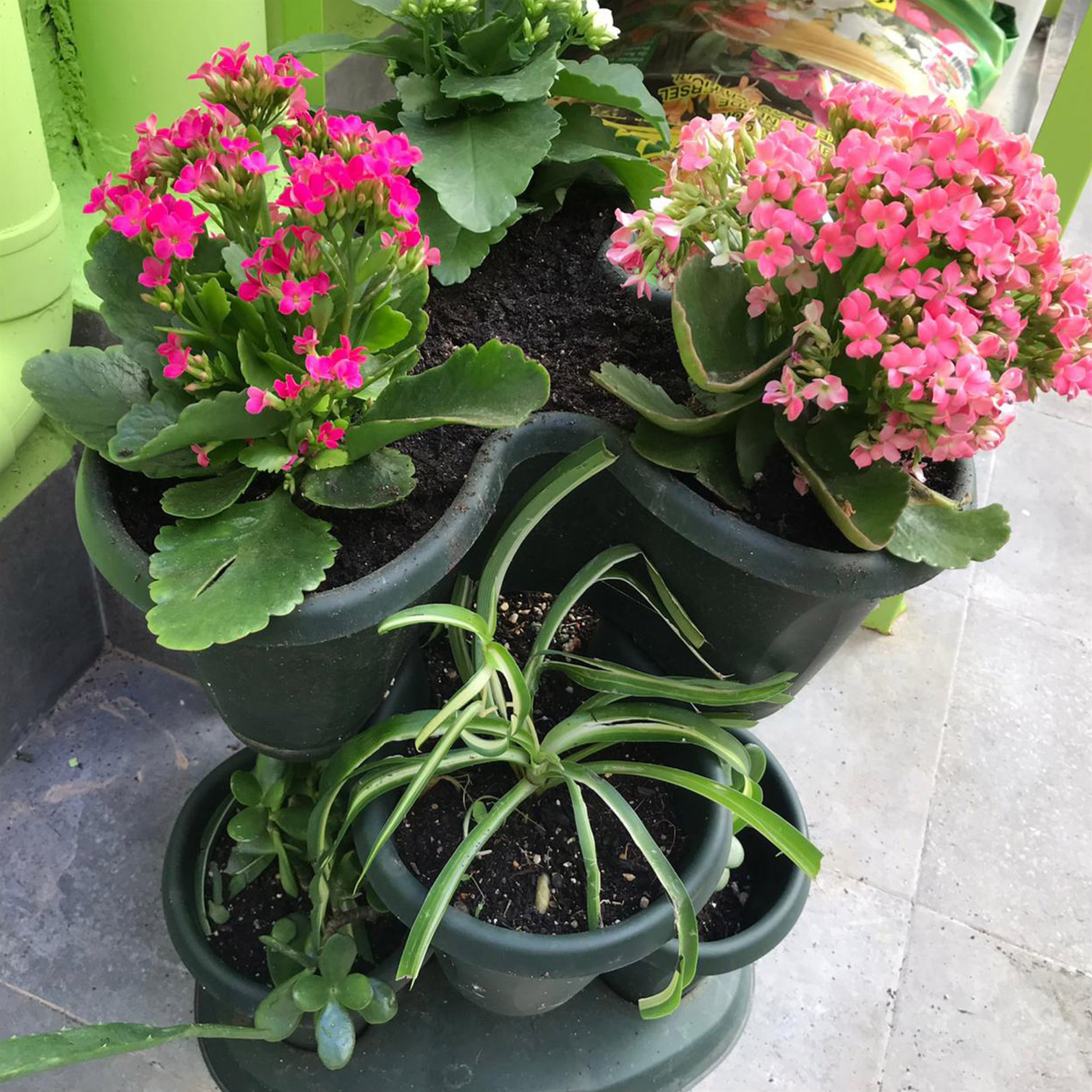
KEY WORDS: Early childhood education, school garden, project work, teaching-learning, constructivism.
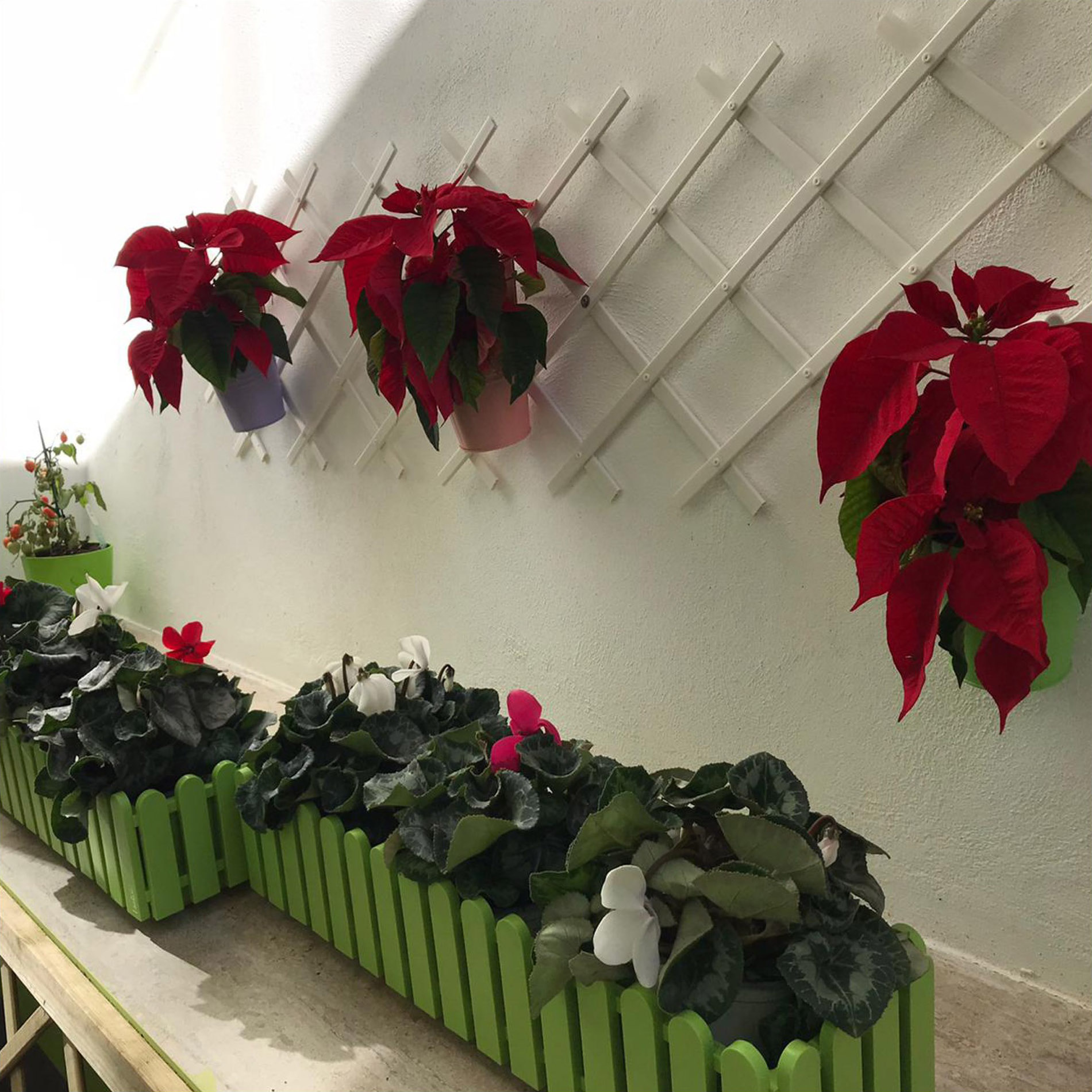
MATHS RESTAURANT
"My Restaurant" is based on a project that we have been carrying out for five school years by the 1st of Secondary maths teachers Anna Ramon and Jesus Serrano during the third quarter of the school year.
It is a task created by the mathematics department, in which the students of this grade plan an imaginary restaurant. It consists of 7 tasks, the last of which is voluntary.
- Task 1 - Presentation of the restaurant
- Task 2 - Recipes and ingredients
- Task 3 - Cost of food
- Task 4 - Miscellaneous expenses
- Task 5 - Restaurant staff
- Task 6 - Estimated costs of full menu
- Task 7 - Project "MasterChef"
To see what each of the tasks consists of, click to visit the Project "Masterchef" web page.
This project is done in the computer lab in cooperative groups. Our students produce the content through shared documents on the Google Classroom and Schoology platforms. At the end, students present their work: mathematical content, work style, responsibilities of the group members, computer tools used, etc.
Teachers conduct an ongoing evaluation of the project during each session. Teachers meet periodically with the “chefs” to give instructions, guidelines and to correct mistakes. At the end of the process we evaluate based on the abilities developed through a rubric.
The abilities developed through Project "MasterChef" are a sense of initiative and entrepreneurship as well as linguistic, mathematical, digital, cultural, artistic and information processing competencies.
GAMIFICATION
Classical Culture classes take place in the computer lab. Its content is developed and managed through Google Classroom which promotes and develops the use of new technologies when applied to teaching our students.
In this class gaming techniques are applied for the possibility of reaching "Achievements" to unlock rewards in a competition between groups. The groups are organized in Hogwarts “Houses”. The competition goes throughout the year to increase the interest and motivation of students. The competition culminates with one group winning and earning extra points toward their final marks.
"COOPERATIVE LEARNING"
One of the basic functions of the school is socialization. Aspects such as tolerance, respect for diversity of all kinds and cooperative work are abilities that the school has the privilege to develop from a very early age. The students do not attend school in isolation, their experiences at school are not of an individual nature. On the contrary, they must attend class with their peers for many hours a day, for many years of their lives. It is not surprising that their favourite moments and subjects are those in which contact and relationships are valued.
For this reason, teachers must work and promote cooperative learning. It is a fundamental methodology of our educational work in ethics, teaching and in the development of their own curriculum.
This methodology is based on the creation of small co-ed groups, where it's necessary to foster responsibility, coexistence, respect, tolerance and mutual help in relationships. The professional future of today's students will be determined by multidisciplinary and collaborative teamwork. Therefore, the sooner they develop this capacity, the more adapted they will be to the working and social life of the future.
Cooperative learning is a transversal active methodology that supports new technologies where the focus of teaching is the students themselves. It is based on the use of simple organizational structures and specific cooperative techniques. For this we use techniques that encourage participation and cohesion of the groups such as rotating paper, pencils to the center, shared reading, bag of questions, group tournament, etc. Cooperative learning should not be confused with the typical group work in which students share the tasks to develop curricular content individually.
This methodology encourages new educational trends such as gaming of school content, escape rooms, project-based work, etc. In our school this methodology is applied in all educational stages.
EUROPEAN LANGUAGE PORTFOLIO
The European Language Portfolio (ELP) is a document promoted by the Council of Europe and based on the Common European Framework of Reference (CEFR) which evaluates the mastery of a language. In the ELP students record their language learning experiences and reflect on them. This document consists of three parts:
1. Language passport: students update it regularly and it reflects the degree of language competence. It also contains information about diplomas obtained, courses and exchanges abroad.
2. Language Biography: students describe their experiences in each language.
3. Portfolio: contains examples of personal work (projects, audios, videos, presentations).
We implemented this project in 2018 with the aim of promoting and improving language skills. The aim of the PEL is to encourage everyone to learn more languages and to promote understanding and tolerance between citizens of different cultures. From the pedagogical point of view, it helps with self-evaluation, encourages responsibility for learning and develops personal autonomy.


